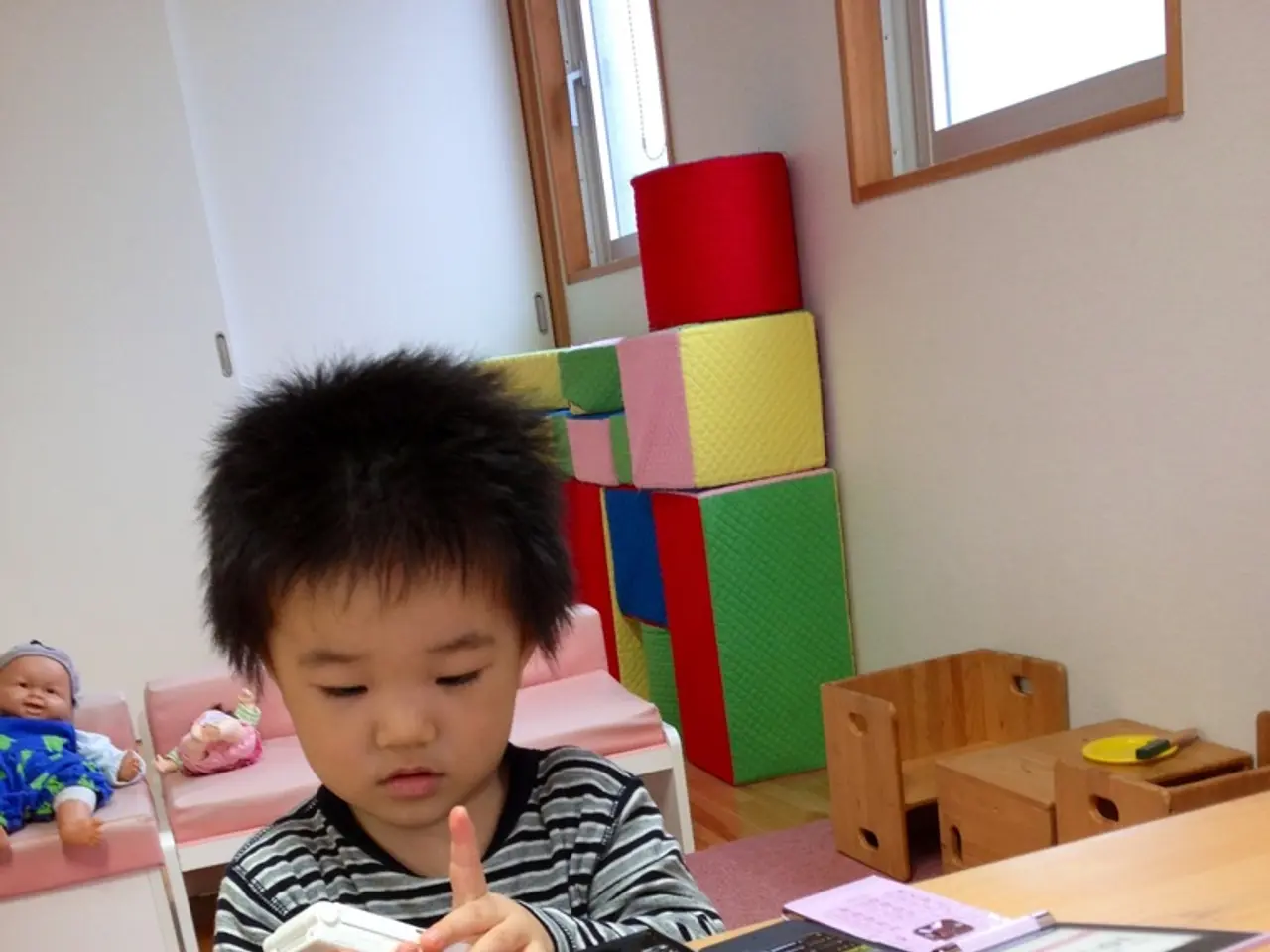Exposure to Extended Screen Time Correlated with Delays in Developmental Progress in Preschoolers
A new study, published on August 21st, has revealed a link between increased screen time for children at the age of 1 and developmental delays in communication and problem-solving skills by the ages of 2 and 4. The research, which included 7,097 children and their parents, was conducted over a period of five years in Japan.
The study found that parents of children with high levels of screen time were more likely to be younger, have never given birth before, have a lower household income, have a lower education level, and have postpartum depression. By age 2, children who spent four or more hours per day with screens were almost two times more likely to experience developmental delays in communication and problem-solving skills. By age 4, the increased risk of delays remained only for communication and problem-solving skills.
The American Academy of Pediatrics (AAP) has long discouraged screen time for children under the age of 2, recommending limiting media use as much as possible. The AAP guidelines suggest that some types of screen time, such as high-quality educational material, may be beneficial for younger children, especially if parents view and teach alongside them. The AAP states that children 18-24 months of age can learn from high-quality educational media as long as parents play or view with them and reteach the lessons.
However, the AAP does not provide specific guidelines for children older than 2 years, and the study's findings suggest that the impact on development increases with longer screen time. The World Health Organization (WHO) has published the recommended maximum screen time limit for children under 2 years old, but no such limit has been set for older children.
Dr. Adams, a child development expert, recommends interacting with the child during screen time, building a routine that involves other kinds of play and interaction, and limiting one's own screen time as a role model for children. Dr. Johns, another expert, encourages parents to delay introducing screens to infants and young children.
The study has some limitations, as researchers didn't have details on what type of screen time children were exposed to. Some research suggests that not all types of screen time have the same effect on a child's development. A poll by the C.S. Mott Children's Hospital found that two-thirds of parents are concerned about their child's screen use.
In conclusion, the new study highlights the potential negative effects of excessive screen time for young children. While it's important to avoid solo screen time for children under age 2, parents of older children are encouraged to limit screen time, interact with their children during screen time, and choose high-quality programming. The AAP guidelines suggest that some types of screen time may be beneficial for younger children, especially if parents view and teach alongside them.






